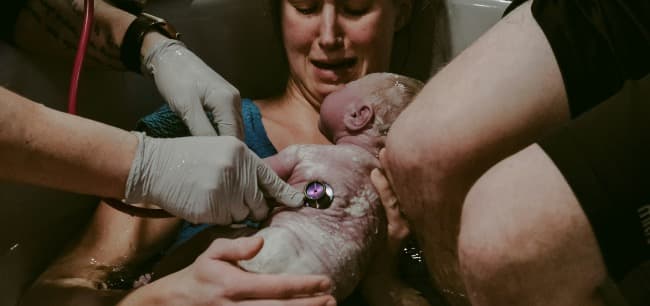Changing one’s self-concept
Clients come to therapy to change something in their life that is not working the way they want it to. Often in my line of work couples come hoping to change their partner so that they can communicate better, be closer, have more pleasurable sex: any or all of the above.
This line of thinking where “I need my partner to see my point of view and then they will change and everything will be ok” is flawed on multiple levels and couldn’t be further from the truth. Change is needed, just not the way that one might think. The beginnings of great change starts with self. In order to have more of the desired experiences, it is important to understand that those changes start with you. Right here, right now, in this moment in time. It is by changing your self-concept and how you view and feel about yourself that you can truly create and maintain lasting change in your relationship.
How you see yourself has a dramatic impact on how you see others. If you see yourself negatively, you are priming the pumps to see others negatively. That which you are unable to see in yourself, you are unable to see in others. That which you least like in others deserves some contemplation. Real and lasting change starts with you. One of the essential building block of a great relationship is holding on to the good parts of you. Look for all that is good and noble within yourself. Remember that you are all the good things you want to be— they are in you. They just have to be discovered. Much like Michael Angelo’s “David” was in the stone already, it use had to be uncovered.
While all this might sound like feel-good psychobabble, I would urge you to give it a try before you and your partner end up in my office at the brink of disaster.
In order for a relationship change to really happen, you start with changing your thoughts and your words. This change of words and thoughts is driven by your desired outcome. You must want this change more for yourself within yourself than within your partner. It is important that you have a clear idea of what you want to feel and experience with your partner. Now, I am not saying that you want to feel the wind blowing through your hair as you stand on the bow of a ship on a cruise in the Mediterranean, although knowing that could also be helpful. What emotions do you want to feel when you are closer, communicating better, and having more pleasurable sex?
Attitude is a key element in making changes. This attitude change requires first that you change your attitude towards yourself. How you think about yourself and your desires has a direct impact of the realization of your desires for your relationship.
Assumptions play a key role in our attitude.
From an evolutionary perspective, the human brain is primed to seek out, focus on, and warn us about the negative. At this stage in our species’ evolutionary history, the need to always be scanning for danger has come to be a far less-needed tool. Today we are better served to make positive assumptions. Brené Brown’s often-quoted line “What are the most generous assumptions you can make?” serves us far better these days. If you are going to make assumptions about your partner’s thoughts or actions, assume positive intent and assign the most generous thing possible. Acquiring the state of generous assumptions about your partner will begin the attitudinal change process. When you have generous assumptions, you will have a much more whole and healthy attitude. Assumptions— generous assumptions!— not only change your attitude, they are the driving force of what you see and what you do. Make them generous ones! This will have a direct impact on the narrative conversations you have with and within yourself and in turn the ones that you have with your partner.
If you want it badly, you’ll get it badly
My partner always tells me “Math and physics, baby, are the language of love.” In some degree he is right. Have you ever been driving down the freeway and see someone look over their shoulder to change lanes and the next thing you know they are coming into your lane? That’s physics in action. Wherever we place our focus is where our body goes. The same could be said for our relationships. Ask yourself, “Where is my focus and attention?” When your focus is on all the things that your partner is doing wrong in the relationship, guess how you are going to feel and how your partner is going to act? That’s right: just like you would expect!
This is where focus and attention come into play. In the 1950s, noted behaviorist BF Skinner sent graduate students out into the homes of families with children that had problematic behaviors. He instructed the graduate students to only reward and praise good behavior. He further instructed them to do it when the children least expected that the graduate students to be watching. This rewarding only the good, to the surprise of the graduate students and the children’s exhausted mothers, brought about end of the problematic behaviors. No punishment needed. Concentrate on what your partner is doing well. Tell them that it is appreciated and that it is meaningful. In today’s vernacular, John and Julie Gottman would call this creating an atmosphere of fondness and appreciation. Make your assumptions, attitude, and focus be in alignment with your goals. Your assumptions and your interpretation of the meanings of your assumptions determine your experience in your relationship. The assumptions become your reality.
The power of intervention.
The metric by which you measure yourself is yours to define and refine. You have the power to alter the course of your relationship. You are free to choose your self-concept. All too often people fall into the trap of accepting their objective experience at face value. They focus in on the small misstep or word of a partner and they fail to see the bigger picture. Concentrate on what you want in the relationship and look for evidence of that in your relationship. Focus on what you want in the relationship, not what you don’t want. Too many people say I don’t want this, that, or the other. Very few say I want this...
Let go of the messages that no longer serve you. Change the conversations in your mind. Look for alternative messages that may also be true and that are beneficial to both you, your partner, and your relationship. In order to truly succeed, let go of what others think and pay attention to what is good in you and your partner.
There is a phrase: “If the mind can conceive it, the body can achieve it”. I still believe this to be true. Belief in oneself does not mean that the first time you try something you will get your desired results. Live your life in a way that is congruent with what you want and how you want to be treated. Treat others the way you want to be treated. When you treat others well and expect to be treated well you will find that more often than not you will treated well. When you change your self-concept you change the future. When you change how you see yourself, and focus on the good in yourself and in others everyone wins.






